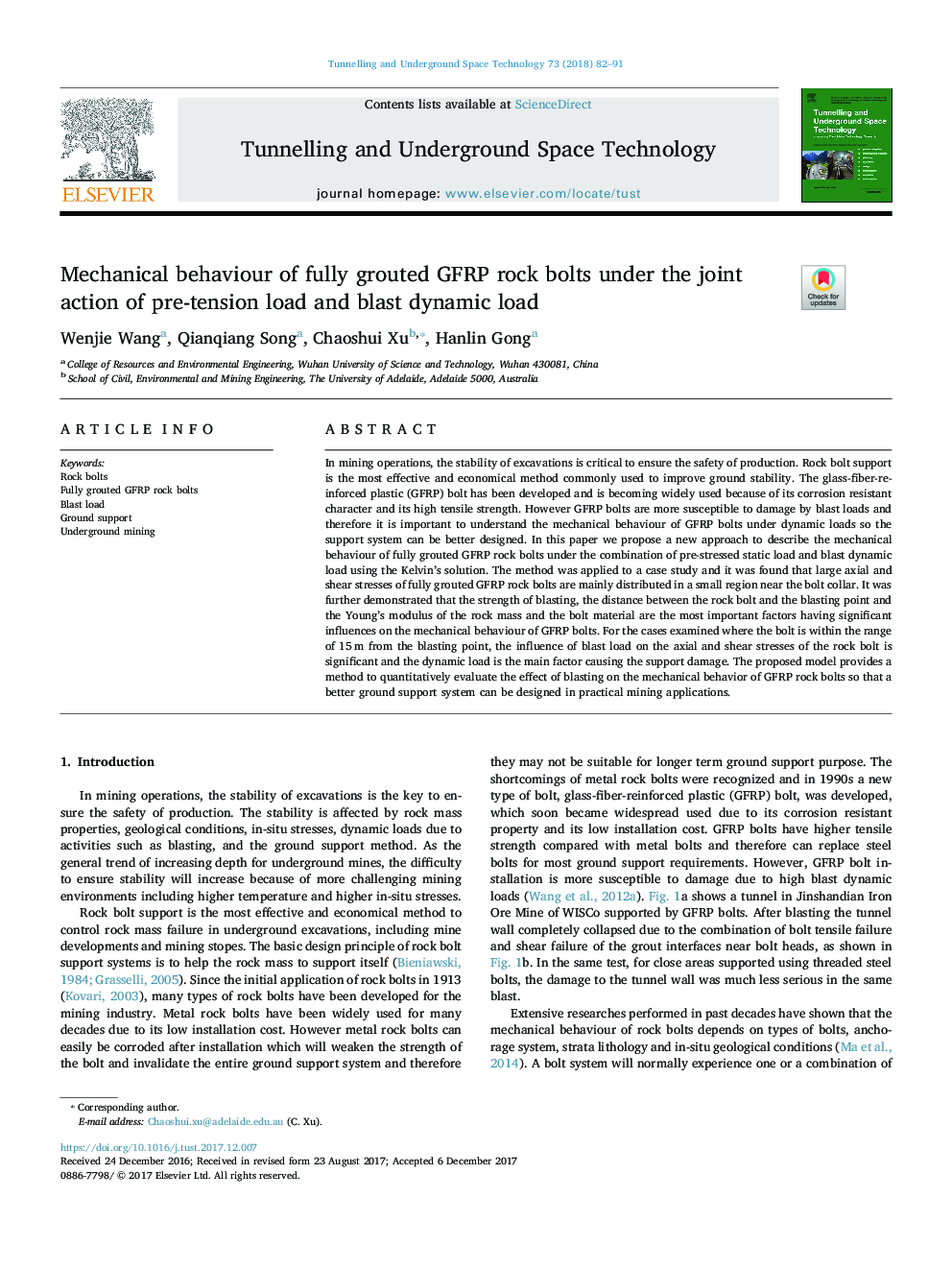| Article ID | Journal | Published Year | Pages | File Type |
|---|---|---|---|---|
| 6782704 | Tunnelling and Underground Space Technology | 2018 | 10 Pages |
Abstract
In mining operations, the stability of excavations is critical to ensure the safety of production. Rock bolt support is the most effective and economical method commonly used to improve ground stability. The glass-fiber-reinforced plastic (GFRP) bolt has been developed and is becoming widely used because of its corrosion resistant character and its high tensile strength. However GFRP bolts are more susceptible to damage by blast loads and therefore it is important to understand the mechanical behaviour of GFRP bolts under dynamic loads so the support system can be better designed. In this paper we propose a new approach to describe the mechanical behaviour of fully grouted GFRP rock bolts under the combination of pre-stressed static load and blast dynamic load using the Kelvin's solution. The method was applied to a case study and it was found that large axial and shear stresses of fully grouted GFRP rock bolts are mainly distributed in a small region near the bolt collar. It was further demonstrated that the strength of blasting, the distance between the rock bolt and the blasting point and the Young's modulus of the rock mass and the bolt material are the most important factors having significant influences on the mechanical behaviour of GFRP bolts. For the cases examined where the bolt is within the range of 15â¯m from the blasting point, the influence of blast load on the axial and shear stresses of the rock bolt is significant and the dynamic load is the main factor causing the support damage. The proposed model provides a method to quantitatively evaluate the effect of blasting on the mechanical behavior of GFRP rock bolts so that a better ground support system can be designed in practical mining applications.
Related Topics
Physical Sciences and Engineering
Earth and Planetary Sciences
Geotechnical Engineering and Engineering Geology
Authors
Wenjie Wang, Qianqiang Song, Chaoshui Xu, Hanlin Gong,
